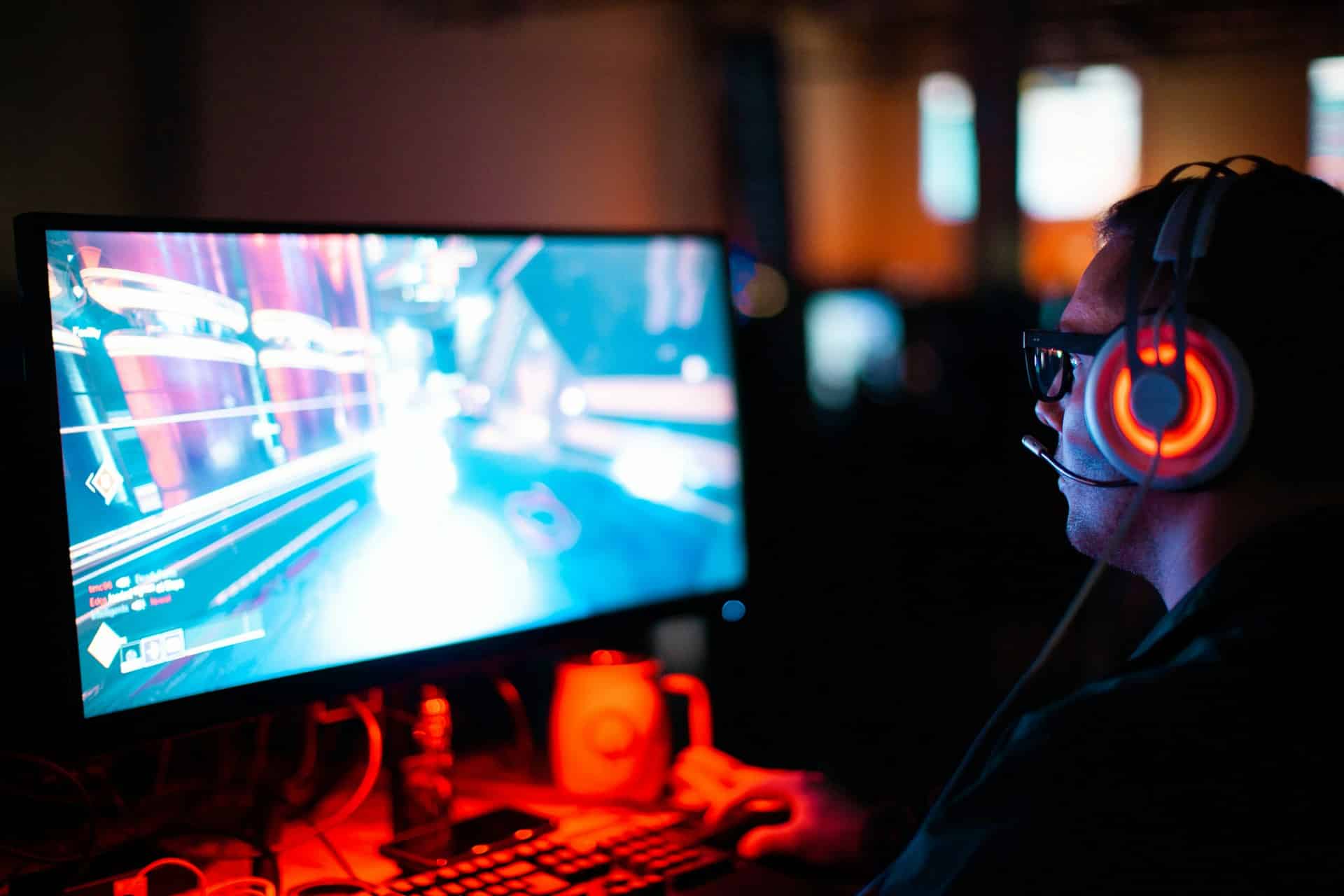
How can machine learning algorithms be used to create more engaging player-versus-environment encounters?
In the ever-evolving world of gaming, developers continually seek innovative ways to captivate players and enhance their gaming experiences. One of the substantial advancements in this regard is the application of machine learning algorithms in game development. The potential of these algorithms is vast, and their implications for player-versus-environment (PvE) encounters are particularly intriguing. They promise to transform these experiences into more immersive, reactive, and ultimately engaging affairs. Let's delve into this exciting realm, exploring how machine learning can make PvE encounters more gripping than ever before.
The Promise of Machine Learning in Game Development
Machine learning, a subset of artificial intelligence (AI), offers a unique way to improve game development. By learning from data, machine learning algorithms can predict player behavior, adapt to different situations, and enhance the overall gameplay experience.
A voir aussi : How can procedural generation be used to create unique quests in open-world RPGs?
Typically, in a PvE scenario, players engage with non-player characters (NPCs) controlled by AI. Traditional AI functionality can be somewhat rigid, with NPCs following pre-determined paths and set behavior patterns. However, machine learning offers an opportunity to overcome these limitations.
With machine learning, NPCs can learn from player behavior and adapt their strategy accordingly. This dynamic interaction creates a more immersive gaming experience, as players need to constantly adjust their tactics to counter NPCs that evolve and learn from their movements and actions.
Cela peut vous intéresser : How can developers use deep learning to create more realistic crowd simulations in sports games?
Enhancing Player Experiences Through Adaptive Content
The use of machine learning in games is not just limited to the behavior of NPCs. It can also be used to create adaptive content, which can significantly boost the player's experience.
Adaptive content involves the game environment reacting and changing according to the player's actions and decisions. This practice can create a more immersive and lifelike experience, as the game world evolves dynamically based on the player's decisions and actions.
Machine learning algorithms can analyze and learn from the player's behavior, allowing them to predict what kind of content will be most enjoyable for the player. As a result, developers can create games that deliver a unique experience for each player.
Transforming NPC Behavior with Machine Learning
One of the most prominent ways machine learning can improve PvE encounters is through the transformation of NPC behavior. Traditional AI-controlled NPCs typically have a set pattern of behavior, which can become predictable and repetitive over time.
Machine learning algorithms can analyze player behavior and adapt NPC behavior accordingly. This can result in NPCs that can surprise and challenge players, making for a much more engaging PvE experience.
For instance, if a player frequently uses a specific attack strategy, NPCs could learn to counter that strategy, forcing the player to adjust their tactics. This learning process adds a layer of unpredictability and challenge to the game, keeping players engaged and invested.
Using Player Data for Improved Gameplay
A significant advantage of machine learning algorithms is their ability to analyze vast quantities of data and identify underlying patterns. In the context of gaming, this means analyzing player data to understand player behavior and preferences.
By analyzing player data, game developers can gain insights into player habits, likes, and dislikes. This information can be used to adjust gameplay elements to align with player preferences, leading to a more personalized and engaging game experience.
Moreover, player data can be used to identify areas of improvement in the game. For instance, if certain levels or sections of the game are consistently causing players to quit or express frustration, developers can use this information to tweak these areas and make them more enjoyable.
The Future of Gaming: Machine Learning and Beyond
As we look to the future of game development, machine learning looms large. This technology holds the promise of creating more engaging, immersive, and personally tailored gaming experiences.
In PvE encounters, machine learning can add a dynamic, unpredictable element that keeps players on their toes and fully engaged in the gameplay. By learning from player behavior, machine learning algorithms can create NPCs that react and respond in unique ways, making every encounter feel fresh and challenging.
Moreover, by analyzing player data, machine learning can help developers fine-tune their games, creating experiences that align more closely with player preferences. This approach will lead to games that are not only more engaging but also more attuned to players' needs and desires.
As machine learning continues to advance, its influence on gaming will only grow. From transforming NPC behavior to creating adaptive content, the potential applications of machine learning in gaming are vast. And while we've only just begun to explore these possibilities, it's clear that machine learning will play a vital role in the future of game development.
Reinforcement Learning for Heightened Decision Making in Games
Reinforcement learning, a type of machine learning, can play a significant role in elevating the decision-making process of NPCs, thus offering more challenging and engaging PvE encounters. In traditional game development, the AI-controlled NPCs follow specific set patterns and rules. This approach often leads to predictable gameplay, thereby reducing the challenge and engagement for the player.
However, reinforcement learning introduces a dynamic element in the game design. It enables NPCs to learn from their experiences. They can observe the player's actions, evaluate the outcomes of their own decisions, and adjust their future behavior based on these observations. Reinforcement learning essentially allows NPCs to learn from their mistakes and successes, leading to improved decision making.
This approach leads to an evolution in the game worlds. The NPCs start to exhibit more lifelike behavior, adding a layer of complexity and realism to the gaming experience. For instance, if a player frequently uses stealth tactics, NPCs can learn to be more alert and responsive, thereby increasing the game's difficulty level and engagement.
Reinforcement learning hence infuses a sense of unpredictability in PvE encounters, making every game session unique and exciting. It gives rise to dynamic, adaptable NPCs that can offer a challenge to even the most seasoned players, thereby enhancing the overall gaming experience.
Procedural Content Generation and Machine Learning
Procedural content generation (PCG) has changed the landscape of the gaming industry. It involves the creation of game content automatically using algorithms, thus reducing the time and resources spent on manual content creation. When combined with machine learning, PCG can significantly enhance the player's gaming experience.
Machine learning can be used to analyze the effectiveness of generated content. Here it assesses player actions and reactions to different game elements, like level design, enemy placement, and puzzle complexity. The machine learning algorithms can then adjust the procedural content generation based on this analysis, creating game content that is more aligned with player preferences.
This can lead to the development of video games that are not just engaging, but also personalized. For instance, if a player shows a preference for strategic play over action, the algorithm could generate more puzzle-based content. This adaptive content generation adds a layer of personalization to the game, making it more engaging for individual players.
Moreover, machine learning can also be used in real-time adaptation of game content. If a player is struggling with a particular section, the game could dynamically adjust the difficulty level or provide additional hints. Such responsive game design can significantly improve player retention and satisfaction.
Beyond Machine Learning: The Future of the Gaming Industry
The future of the gaming industry is undoubtedly intertwined with advancements in artificial intelligence and machine learning. These technologies offer a myriad of possibilities for game developers to create more engaging, immersive, and personalized gaming experiences.
In the realm of PvE encounters, machine learning holds the promise of creating dynamic and challenging environments. It allows for the development of intelligent NPCs that adapt and learn from player behavior, making every encounter unique and engaging.
Moreover, the application of machine learning extends beyond NPC behavior to adaptive content generation. By analyzing player behavior, machine learning can help create game content that aligns with player preferences, creating a more personalized gaming experience.
As we move forward, we can expect to see more advanced applications of machine learning in gaming. From more intelligent NPCs to real-time adaptation of game content, the possibilities are vast and exciting. As machine learning continues to evolve, it will undoubtedly usher in a new era of innovation in the gaming industry, pushing the boundaries of what is possible in video games.
The future of the gaming industry is bright, and machine learning is leading the way. Embracing these advancements will be key to creating the engaging, immersive, and personalized gaming experiences of the future.
